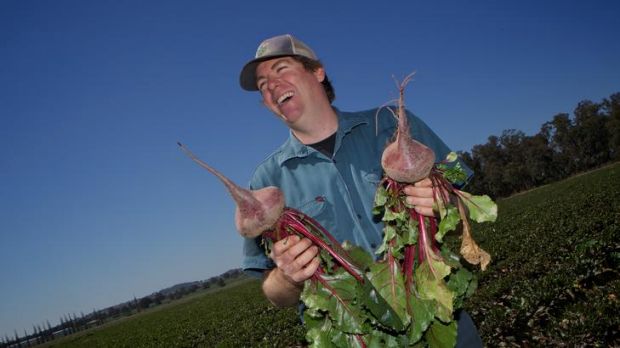Saviour Comes to The Rescue in Vegetable Price War
Source: SMH – Alexandra Smith
THE supermarket price wars began with milk, extended to lamb and have now hit one of Australia’s most iconic vegetables, the beetroot, prompting concerns cheap tins on supermarket shelves could kill locally grown produce. Aldi has started selling own-brand tins of beetroot for just 75 cents, forcing Woolworths and Coles to follow suit. But farmers and the only Australian-owned cannery, Windsor Farm Foods, have warned the prices are not sustainable.
One of the country’s few beetroot farmers, the Fagan family in Cowra, were considering ploughing their large crop back into the soil because they could not can their beetroot cheaply enough to compete with Aldi’s prices. Determined to save the vegetable that is rarely missing from a hamburger, the entrepreneur, Dick Smith, stepped in this week and bought the Fagan’s beetroot crop for almost $80,000 and will have it canned.
A spokeswoman for Aldi said the company was committed to supporting Australian producers and products ”where possible” and stressed that its 75 cent beetroot was sourced from Australia. Woolworths and Coles this week slashed the price of a leg of lamb by as much as $5 and Coles sparked a price war over milk early this year when it began selling its own-brand for $1 a litre.
But while consumers may be making slight savings, some of the country’s oldest food manufacturers are suffering. Windsor Farms has been canning the Fagans’ vegetables since the factory opened in 1942 but Jim McKenzie, the operations manager, said supermarkets were selling their own-brand beetroot well below cost price.
Mr McKenzie said it costs 50 cents for the can and the beetroot, but that does not include labour or freight costs. ”This sort of pricing is not sustainable and will see the further demise of Australian food manufacturers and the farmers who supply raw materials,” he said. Ed Fagan, a fifth-generation farmer, said importing vegetables were increasingly making their way into Australia. ”We are struggling to find people to grow for,” Mr Fagan said.
